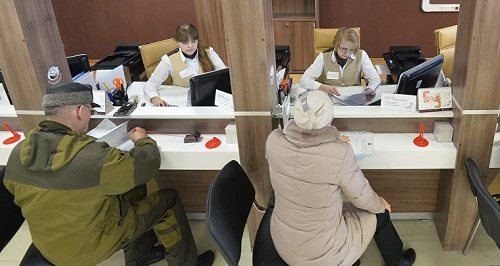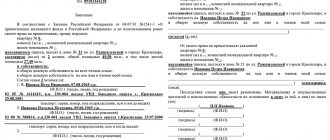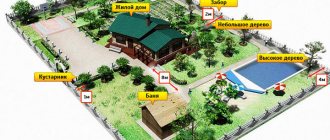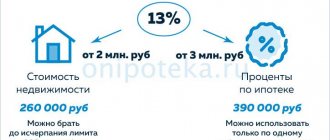Home / Housing disputes / How many times can you participate in privatization
The state gives the right to obtain housing completely free of charge and legally. No, we are not talking about buying and selling or renting an apartment. There is a very profitable and simple procedure called privatization. But at the same time, the right to receive housing has a number of restrictions - a person can take advantage of the attempt to privatize an apartment or house only once in his life.
True, there are exceptions here too, to which close attention should be focused. How many times can you take part in the privatization of residential premises? Who can take advantage of a second chance? We will talk about this below in detail.
Is it possible to participate in privatization a second time?
Let's start with the fact that privatization is available to any capable citizen of our country.
The number of attempts is limited - the applicant has the right to privatize an apartment once in his life (Article 11 of Federal Law No. 1541-1 “On Privatization...” dated 07/04/1991). This means that repeating the procedure with another municipal housing will become impossible - the person will simply be denied registration.
The question arises: is it possible to bypass this restriction and take part in privatization a second time? It is possible, but only if there is a good reason. For example, due to the deprivatization of residential premises, this is a forced process, the reverse of privatization. Or, simply, declaring the deal invalid and returning previously privatized housing to the city . Such a procedure is possible only through the court and if there are serious grounds. Let's analyze the life situation.
Example: The Sokolov family occupied a municipal apartment for 7 years. Subsequently, the residents decided to privatize the housing. The procedure was successful, but during the process the interests of one of the family members, a minor, were violated. Violations were identified jointly with the guardianship authorities after the completion of the transaction. But this did not stop the head of the family from filing a claim in court to declare the privatization invalid. The demand was satisfied, since it was established that the child did not receive his due share in the apartment. The apartment was deprivatized, and all members of the Sokolov family received the right to participate in the transfer of housing ownership for the second time.
The example clearly shows that despite the exhaustion of the attempt for free privatization, people received a chance to participate in the procedure again. Does this mean that such a right is available to everyone? Of course not!
There is also the opposite situation - say, if privatization was carried out according to all the rules, but the citizen decided to return the apartment to the state of his own free will - this is deprivatization , the attempt is considered used. A person will not be able to use the right to the procedure a second time. Therefore, you need to approach the procedure wisely, calculate taxes in advance and plan the further disposal of your housing.
When can you re-participate in housing privatization?
As a general rule, citizens who voluntarily renounce ownership of their housing (deprivatized an apartment) lose the right to re-register ownership of their housing . This applies to both the same housing and any other.
But that’s the rule, there are exceptions!
Did you notice the word “voluntary”? This is the key word in this context. If the privatization of housing was challenged in court and declared invalid , then the deal is “rolled back” and ownership of the apartment is forcibly returned to the city.
In this case, it is considered that the person has not exercised his right to free privatization. This means that he again has the right to participate in the privatization of the apartment - again.
Another case. The husband, wife and mother-in-law (for example), registered in the apartment, decided to privatize it. But the mother-in-law refused (in writing) to receive her share of the property in favor of the young. Privatization was issued only to husband and wife. After some time, the couple decided to deprivatize their apartment, transferring it back to the municipal fund.
As a result, both spouses lost their right to free privatization (since they had already used it). But the mother-in-law has retained this right , and she may well privatize the apartment again .
What is the basis of security when buying and selling an apartment - see this article.
The third case when re-privatization of housing is possible. This is a case where a minor child (as part of the family) participated in the initial privatization. By law, children are automatically included in the number of owners when registering for free privatization. But since their parents decide everything for their children in such matters, and they also make the decision on deprivatization, the law believes that the child’s right to one-time privatization should be preserved.
Thus, upon reaching adulthood, these children can again participate in the privatization of an apartment - the same one again (if it was deprivatized), or any other (Total: the following citizens have the right to re-privatize housing:
- those who lost their property rights as a result of judicial privatization of an apartment;
- those who have not previously exercised their right to free transfer of housing ownership or have refused it in favor of other residents;
- minor children who participated in privatization “not of their own free will,” but at the will of their parents;
- those who lost property as a result of an emergency.
For all others who once used their right to free housing ownership, and abandoned it through deprivatization, sale or donation, re-privatization of the apartment is not allowed .
Exceptions
So, the right to re-privatization in 2020 belongs to persons who challenged the first procedure in court and achieved its cancellation. In addition, a number of citizens have the right to re-participate in the procedure. It doesn't matter whether they refused the previous operation or not.
List of exceptions:
- Minors (under 18 years old)
They can always take part in the privatization of an apartment a second time. The main condition is the right to such a transaction. Conventionally, if a child participated in the procedure for the first time together with his parents, and after reaching 18 years of age wants to re-register ownership of a new home, he cannot be refused. We remind you that residential premises transferred to citizens on the basis of a social tenancy agreement or warrant are subject to privatization.
- Lost housing
This includes persons who have lost privatized housing due to man-made disasters, natural disasters, terrorist attacks and other unfavorable factors. If those who have lost their housing have nowhere else to live, they have the right to repeat the procedure, but in a different apartment.
And again a life situation.
Example: Gladenko V.A. lived in municipal housing under a social tenancy agreement, and then privatized it. But soon misfortune struck the region - the house in which Gladenko’s apartment was located was destroyed by a mountain landslide. The man himself was not injured, but lost some of his belongings and housing. The state provided assistance to the victims - in particular, Gladenko received compensation. At the same time, the man was allocated a municipal apartment in a neighboring city on the basis of a social tenancy agreement. After living there for a couple of years, Gladenko applied for the privatization of housing - again. The man justified his actions with a document about the loss of the previous re-registered housing due to a man-made disaster (landslide). The application was granted and Gladenko was able to complete the privatization of the municipal apartment. Thus, the repeated attempt to transfer public housing into ownership was an exception to the general rules, but was fully justified and legal.
- Those resettled from the North and former republics of the USSR
An important condition for the last category is to return previously privatized real estate to the former owner (the municipality). In return, the state will allow you to use the repeat procedure completely free of charge. However, if the privatized housing has already been sold, donated or bequeathed, secondary registration will become impossible.
- Participants of the paid procedure
There are two types of privatization: paid and free. Citizens of our country have the right to use the free procedure once during their lifetime. For comparison, paid privatization is not limited to attempts - if you have money, you can buy municipal housing at its cadastral value. Participation in a paid transaction does not cancel an attempt to re-register a living space free of charge.
How many times can one person participate in privatization?
The law clearly stipulates that citizens are granted the right to participate in free privatization once during their lifetime.
exceptions to this law , thanks to which you can participate in privatization a second time.
The preferential categories of citizens who are allowed to participate in privatization more than once include the following persons:
- Those who participated in privatization before reaching adulthood . Due to the fact that until the age of 14 citizens are minors, and from 14 to 18 years old they are partially capable, privatization is carried out on their behalf by parents or guardians.
- Persons who have lost their housing as a result of disasters, military operations or terrorist attacks .
- Migrants from the regions of the Far North , and their former housing must be returned to the ownership of the state or municipality.
Upon reaching the age of full legal capacity (18 years), they receive the right to new privatization without deprivation of previously privatized housing.
Repeated participation in privatization is possible if it was canceled by a court decision , that is, declared invalid.
In this case, in fact, a citizen can participate in privatization a second time , although from the point of view of the law this will be the first privatization - the first transfer of ownership of housing will be considered void.
It should be noted that deprivatization (returning a property back to the ownership of the state or municipal entity) does not give the right to new participation in privatization.
How many apartments can one person privatize?
Federal law allows one person or several people to re-register an apartment at the same time. The first case is registration of housing in sole ownership, and the second - in shared ownership. This begs the question, is it possible to privatize an apartment for one person if he already owns another property?
Expert opinion
Semyon Frolov
Lawyer. 7 years of experience. Specialization: family, inheritance, housing law.
It is impossible to answer the question right away - there are many examples of both approval and refusal by the authorities. General rule: privatization applies to one residential premises, and if children are involved in the procedure again - to a second housing or a share in it .
Tenants of municipal housing under a social tenancy agreement can privatize an apartment provided they have not participated in the procedure until now. Consequently, any refusal to privatize, even if a person has other housing, will be unfounded.
But on the other hand, if a person has personal property, but still lives in a municipal apartment and wants to register it as his own, this is a reason to terminate the social tenancy agreement. Such cases do occur and the administration’s actions will be considered justified. Especially with a shortage of social housing for low-income categories of the population. Naturally, if the contract is not terminated and the employer applies for privatization, he is unlikely to be refused.
What kind of housing cannot be privatized?
Not all housing stock that is not the personal property of citizens participates in privatization programs.
Housing that does not belong to the state or municipal housing stock cannot be transferred into personal ownership. Such real estate objects include :
- official and departmental housing of enterprises, organizations, etc.;
- premises in military camps ;
- premises in existing dormitories (work or educational).
It is also impossible to privatize real estate in buildings that are in disrepair or are being prepared for demolition.
What kind of housing cannot be privatized even for the second time?
Before you become a home owner, you need to know its status. It is quite possible that the apartment cannot be transferred to individuals - it will not be possible to register it as private property even if you try again.
It is prohibited to privatize:
- service housing (with a number of exceptions);
- dormitories;
- housing located in closed towns (for example, military);
- emergency facilities.
The last three categories are not subject to free privatization in any form. Service apartments, although rarely, are privatized. The main condition is the consent of the owner of such housing. For example, if the department gives the go-ahead, an employee of the organization will be able to submit documents for the transfer of a company apartment. But, we repeat, only with the consent of the department and only if there are compelling reasons.
What kind of housing cannot be privatized even for the second time?
Despite the considered exceptions to re-privatization, there is housing that cannot be privatized a second time. Before preparing a package of documents for re-registration of ownership of an apartment, its legal user needs to find out the current status of the housing. There is a certain type of real estate that is not subject to the privatization procedure. This:
- real estate that is a service property. For example, housing in military camps, specially designated houses for employees.
- Dormitories.
- Housing that is in disrepair or is scheduled for demolition.
How to take part in privatization again?
The first participation in the procedure does not cause any particular difficulties, especially since we have already described the step-by-step algorithm in our previous articles. You can check out:
“How to privatize an apartment, housing?”
“What documents are needed to privatize an apartment?”
“How to privatize land under a private house?”.
Re-privatization is not much different. The main thing is to adhere to the established procedure and provide a complete package of documents. Let's start with step-by-step instructions.
Order and procedure for re-privatization
Those wishing to take advantage of the second chance to privatize an apartment or housing must do the following:
- Prepare documents for participation in the free procedure, incl. confirm that resubmission of the application is justified.
- Contact the MFC office.
- Write a statement to the local administration.
- Wait for approval from the authorities.
- Sign the apartment privatization agreement
- Complete the procedure by registering ownership in the MFC or Rosreestr.
Thus, the procedure practically coincides with the algorithm for privatizing housing for the first time. Particular attention should be paid to the second stage - the evidence provided determines whether your application will be approved or rejected.
Documentation
The submitted documents can be divided into two categories: application + title documents for real estate, as well as evidence of legal participation in privatization for the second time.
The package of documents includes:
- Russian passport - for adults, and children provide a birth certificate;
- documentation for the apartment - in particular, the registration certificate (a copy is sufficient);
- a document confirming the right to transfer living space into private ownership - a social tenancy agreement or a warrant (for old apartments);
- extract from personal account(s);
- permission for privatization - housing should not be withdrawn from circulation;
- written statements from all participants;
- a refusal certified by a notary, if not all residents agree;
- extended extract from the house register;
- confirmation of legal participation in the procedure for the second time (certificate of minor age at first participation, certificate of membership in the category of residents of the Far North, certificate of participation in a paid housing transaction, etc.);
- other documents upon request.
The above documents are annexed to the application to the administration. Look for a sample, form and form in the article “Application for privatization of an apartment, residential premises.”
The procedure for the second free privatization
In fact, it will not be much different from the usual one. To do this, you will need, as before, to collect a standard package of documents provided for by local regulations. In the case when it comes to canceling privatization by court, it may be necessary to attach a court decision. The applicant will need:
- Passports of privatization participants,
- Birth certificates of minor participants in privatization,
- Extract from the Unified State Register of Real Estate,
- Technical passport for apartments, issued by BTI,
- Certificate of family composition,
- Notarized waivers from those residents who will not exercise their right,
- Extract from the house register,
- A certificate stating that the applicant has not previously participated in privatization as an adult. If privatization was canceled by court or the apartment was deprivatized, it would not be superfluous to have documents confirming this fact.
As before, the easiest way is to submit documents to the MFC. Its employees will transfer it as quickly as possible to the authorized body, which within 2 months will make a decision on the possibility of re-privatization.

Nuances of the procedure
Re-privatization has distinctive features. Before collecting documents and declaring your rights, lawyers recommend that you familiarize yourself with the following nuances. For convenience, we highlight them in a separate list:
- Privatization of housing for the second time allows for the allocation of shares or the registration of an apartment into common shared ownership. It is not necessary to re-register an apartment for only one citizen.
- If a person has previously privatized an apartment, tried to sell it, but failed, a repeat procedure will be impossible. But nevertheless, the citizen will be provided with new housing from the state on the basis of a social tenancy agreement.
- Participation in free privatization is allowed if a person already has separate housing. For example, an apartment under a purchase and sale agreement, received as a gift, by inheritance. The chance for free privatization of housing from the state is not going away.
- If a person has the right to re-privatization, this does not mean that the procedure must necessarily occur. You can write a refusal to privatize if, say, a person intends to transfer ownership of another municipal facility.
- It is prohibited to transfer your right to re-privatization to other persons if the latter have already taken advantage of their attempts. It is allowed to draw up only a notarized refusal.
So, we figured out that you can participate in free privatization only once in your life. The paid transaction is not limited by the number of attempts, since this is a purchase of housing from the state. Minors who have lost their housing as a result of disasters and residents of the northern regions of Russia have an inalienable right to re-privatization. If you voluntarily return your housing to the state, your attempt will not be returned. And if privatization was challenged in court, the re-registration will remain. The third and subsequent attempts at the real estate procedure are impossible.
Privatization of an apartment is considered simple only on paper.
The reality is much more complicated. Often, residents have to run around the authorities and collect a lot of certificates, and it is not a fact that the transaction will be approved by the administration. There are also refusals to privatize housing. Often unfounded, but affirmative. Applicants need to prove that they have retained the right to re-privatization. How to do this, how to confirm, where to contact? The answers to these and other questions are provided by the lawyers on our site. Consultations allow you to understand the problem, understand how to proceed further, is the right to privatization available? If you have questions, ask a lawyer by phone or chat. And then you won’t have to listen to refusals, delve into laws, or contact your friends. Legal advice saves your time and nerves! Attention!
- Due to frequent changes in legislation, information sometimes becomes outdated faster than we can update it on the website.
- All cases are very individual and depend on many factors. Basic information does not guarantee a solution to your specific problems.
That's why FREE expert consultants work for you around the clock!
- via the form (below), or via online chat
- Call the hotline:
- Moscow and the Region
- St. Petersburg and region
- FREE for a lawyer!

By submitting data you agree to the Consent to PD Processing, PD Processing Policy and User Agreement.
Anonymously
Information about you will not be disclosed
Fast
Fill out the form and a lawyer will contact you within 5 minutes
Tell your friends
Rate ( 2 ratings, average: 5.00 out of 5)
Author of the article
Maxim Privalov
Lawyer. 2 years of experience. I specialize in civil disputes in the field of housing and family law.
Author's rating
Articles written
610
Procedure for re-transfer of property
In case of re-privatization, the basis for its conclusion is a purchase and sale agreement.
For a free procedure, such a basis is considered to be a document on the rental of social real estate or a housing order.
First, you should collect papers to cancel the record that privatization has already been carried out:
- A decision of the court will be required, which will issue a decree declaring the transaction invalid.
- It is necessary to submit the document on the right to own the apartment to Rosreestr.
- A request should be sent to the authorities to cancel the privatization transaction for this citizen. The apartment must be returned to the municipal fund.
- Next, the secondary privatization operation is carried out in the same manner as the initial execution of the transaction.

The paid privatization procedure is carried out in several stages.
Stage 1:
Collection of documents:
- Documents of all citizens included in the house register>;
- Order or document for the rental of social housing>;
- Statement of all residents registered in the apartment>;
- Paper about previous privatization>;
- Refusal applications for registration of real estate ownership.
Next steps:
- Stage 2. Drawing up an application for permission to purchase an apartment.
- Stage 3. Decision-making . When confirming a privatization permit, the redemption value must be indicated in the document.
- Stage 4. Drawing up a purchase and sale agreement . The buyer transfers the required amount.
- Stage 5. Transfer of papers to Rosreestr for issuance of a certificate of ownership .
Re-registration of real estate into private ownership, at the expense of the state, is provided to any citizen who has permanent registration in a municipal apartment.
You can use this opportunity once in your life.
Secondary privatization of any housing is carried out free of charge in exceptional situations; in all other situations, Russians can re-register housing as their property only for a fee.
Indefinite privatization of housing. Why did they decide to extend privatization? We invite you to watch the video.
Documentation
The submitted documents can be divided into two categories: application + title documents for real estate, as well as evidence of legal participation in privatization for the second time.
The package of documents includes:
- Russian passport - for adults, and children provide a birth certificate;
- documentation for the apartment - in particular, the registration certificate (a copy is sufficient);
- a document confirming the right to transfer living space into private ownership - a social tenancy agreement or a warrant (for old apartments);
- extract from personal account(s);
- permission for privatization - housing should not be withdrawn from circulation;
- written statements from all participants;
- a refusal certified by a notary, if not all residents agree;
- extended extract from the house register;
- confirmation of legal participation in the procedure for the second time (certificate of minor age at first participation, certificate of membership in the category of residents of the Far North, certificate of participation in a paid housing transaction, etc.);
- other documents upon request.
The above documents are annexed to the application to the administration.
Nuances of the procedure
Like any other procedure, re-privatization has a number of its own characteristics and nuances. The main ones are:
- During re-privatization, you can register both the entire apartment as the property of one participant, and a share. It is not necessary to be the sole owner of the property. The legislation also provides for the privatization of an apartment in the form of allocation of a share.
- If a citizen, during his first attempt at privatization, registered an apartment as private property and tried to sell it, but was unable to, he will not be able to privatize municipal housing a second time. The state can provide communal housing on the basis of a social tenancy agreement. A person will be able to buy an apartment on a general basis according to the cadastral or market value of housing in the region where he lives.
- If a citizen has housing in his personal property, he has the right to free privatization of real estate.
- If a person has a repeated right to the apartment privatization procedure, this does not mean that he must use it. A person has the right to write a refusal if he does not need to transfer the object into private ownership or he intends to exercise his right regarding another object.
- The right to re-privatization cannot be transferred from one citizen to another. This is only permitted if one of the family members writes a written refusal, which must be certified by a notary, in favor of the other.
The repeated right to privatize an apartment is an exception, which is provided for by the legislation of the Russian Federation in certain cases. A citizen has the right to register objects as private property on a paid basis in unlimited quantities.
Expenses
To register ownership rights, you will need to pay a state fee of 200 rubles. You may also need to pay for notary services for registering refusals to participate in privatization (from 100 to 1000 rubles each refusal), as well as issuing a power of attorney for a representative (from 200 to 2000 rubles). In total, on average, you will have to pay from 500 to 3000 rubles or more for re-privatization. Please note that this does not include prices for obtaining certain documents.
Privatization would be a very simple procedure if it were not for the collection of necessary documents. Their list changes regularly, as does the form. Some papers have a limited expiration date, which is why you need to hurry to submit your application. And it is very important to collect all this information together.






